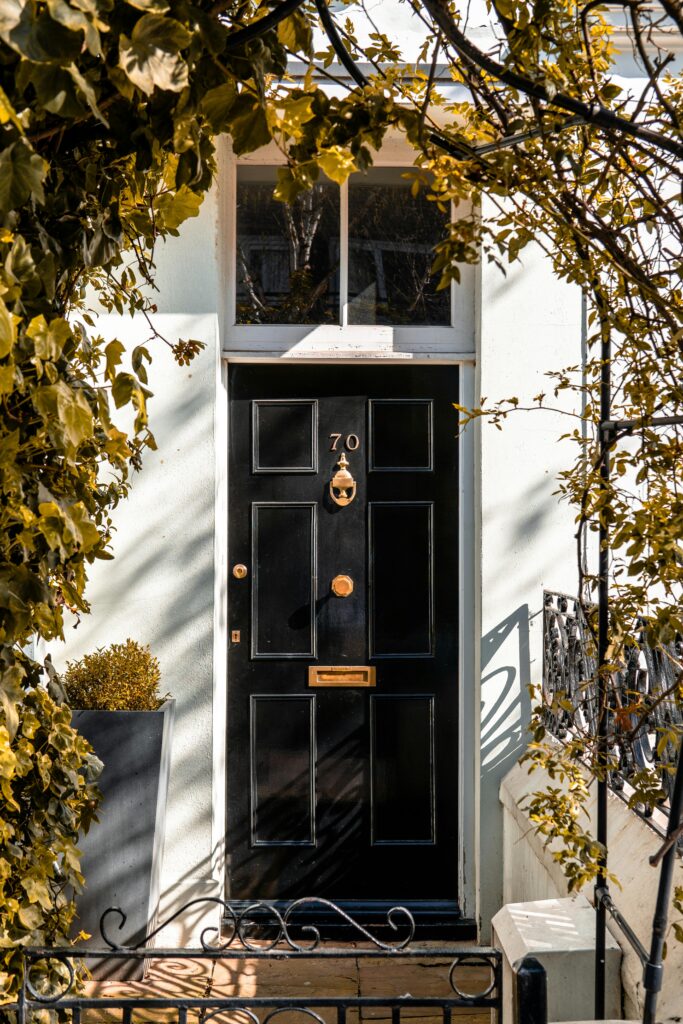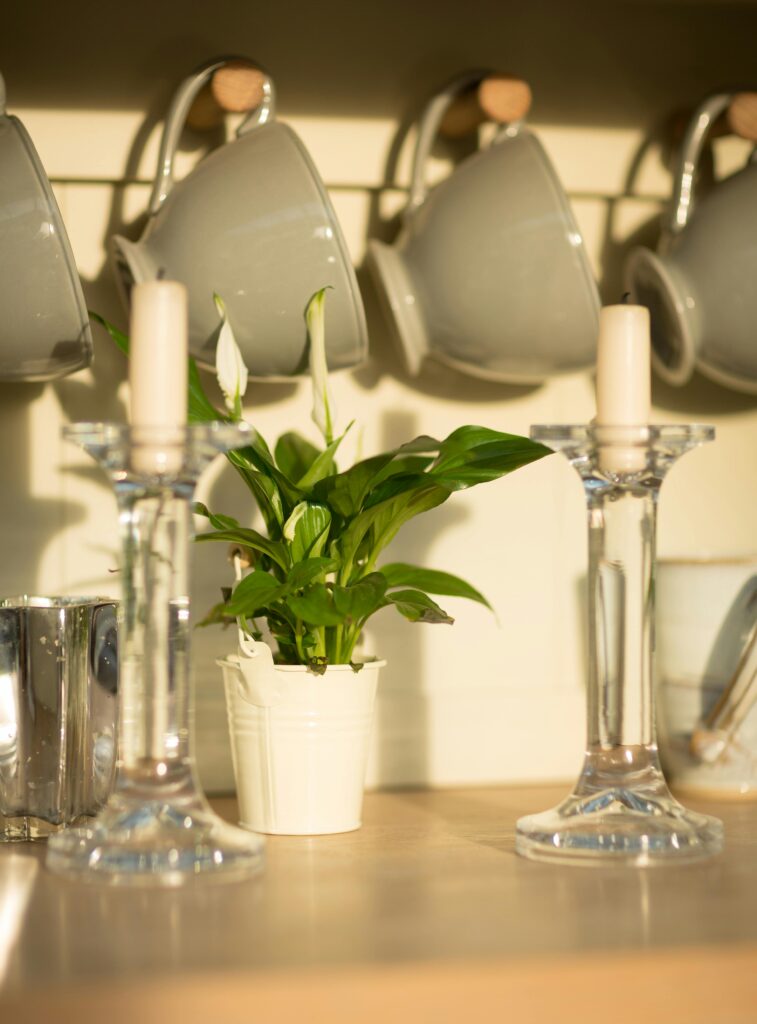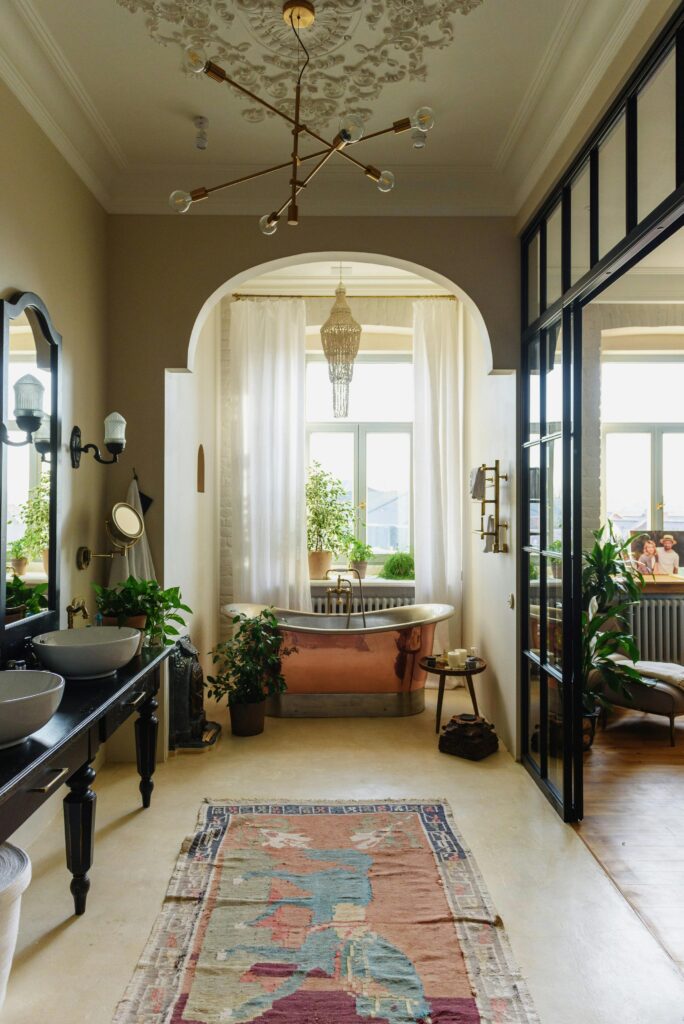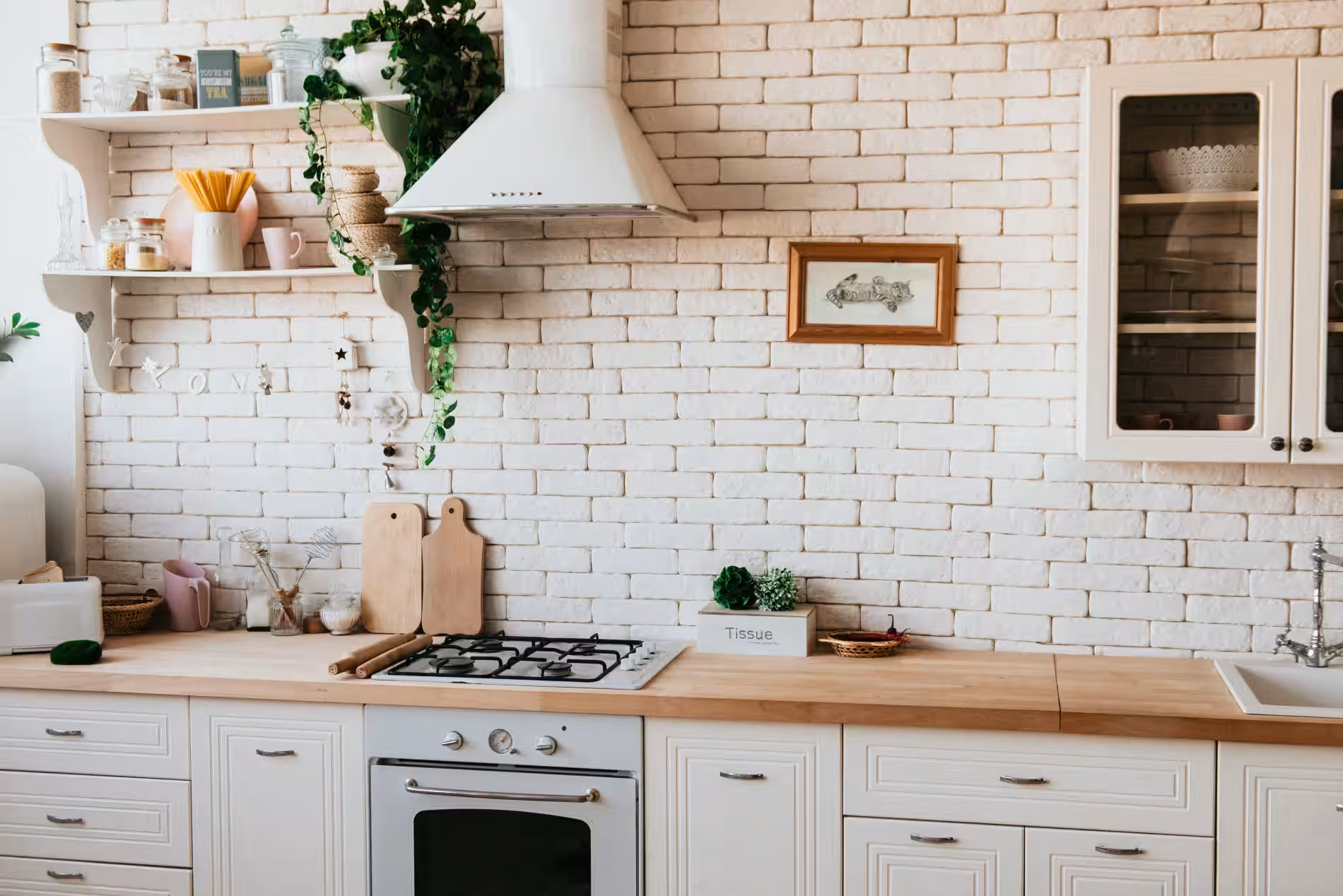Compared to moving house, a home renovation is a cost-effective – and potentially far less stressful – method of adapting your home to your changing lifestyle and needs.
But they’re also a great way for homeowners to recoup money. The housing market as it stands is far from ideal, but homeowners have managed to find the silver lining. Instead of selling imminently, homeowners are instead choosing to focus on home renovation projects that boost equity before going to market when conditions have improved.
Will a home renovation increase the value of my property?
The short answer is – probably! A home renovation could add value to your property – but the next question that typically follows is: how much? And there’s no definitive answer to that. Renovations can range from big or small, from cost-effective to extremely pricey, so the value you’ll add to your property will depend on the type and nature of the renovation.
Generally, any renovation that contributes to the functionality or appeal of your home to other buyers may increase its value; not just structural changes like extensions or adding a conservatory, but even something as basic as a new coat of paint can boost your home’s final selling price, even by a little.
Whether you’re looking to make substantial home renovations or feel a lighter touch will do, we’ve provided a summary of the key renovations to consider.
Upgrading
If you’re happy with the basic structure and offerings of your property but feel it would benefit from a refresh, then upgrading may be the way to go. This is when you update key elements in the home, with popular areas to upgrade including roof repairs, new windows (e.g. to improve insulation), and getting a new boiler or other heating system, e.g. underfloor heating.
Refreshing
As mentioned before, home renovations don’t have to be intensive. You may feel your property is mostly all the way there but would benefit from a few light touches, e.g. updating the wall paint, refreshing the kitchen cupboards, etc. Though these changes may be comparatively small, they can make a huge difference to the feel and appeal of the home that could boost its value.
Extension
If you aren’t afraid of a long-term project – or of the considerable price tag involved – then an extension is a great way to elevate your home to new heights.
Perhaps you’d like to add another bedroom to the side of your home or build into the loft, or you’d like to convert your single garage into a double – whatever the extension, it can transform your home.
According to Checkatrade, the following extensions may add an average value of:
- Single-storey extension – 5-8%
- Double-storey extension – up to 12%
- Garage conversion – 10-20%
- Loft conversion – up to 20%
Landscaping
In the UK, outdoor space is at a premium, so it’s no wonder that homes with a garden fetch substantially bigger sums on the market than their garden-less counterparts. One survey by estate agent Savills found that an average three-bedroom home with a large garden sells for an average of £424,000 compared to £260,000 for a similar-sized home with a very small garden – that’s a staggering 48% difference caused by garden size alone.
But it’s not all about the size of the garden. Particularly if you’re looking to sell your home, the visual appeal of your outdoor space will also go a long way towards attracting buyers. A well-landscaped garden can add beauty, privacy, and some ever-desirable green space to your property. It’s no wonder that a well-presented garden was found to add up to 20% to the value of a home, showing that even houses with outdoor spaces on the smaller side can garner substantial equity.
Conservatory and double glazing
If you’re lucky enough to have a conservatory, the good news is that there are numerous improvements you can make to it to boost your home equity. If it’s single-glazed, you might consider implementing double-glazing to improve insulation so that the space can be better used throughout the year. If you don’t have a conservatory but are considering adding one to your home, the great news is that, provided that it doesn’t significantly eat into garden space (in which case it may be worth avoiding if your outdoor area is limited), the addition of a conservatory can add up to 7% to the value of your home.
Garage and garage conversions
For many, particularly those with high-end cars, a garage is a deal breaker when looking for a new property. That said, a new garage will add an average of 5% to your property value, though the actual figure will depend on your location, property type, and the market conditions. On the other hand, buyers have shown that they highly value the additional living space presented by a garage conversion, with the average conversion adding a not insubstantial 10 – 20% to the value of your home, according to Checkatrade.
Some popular garage conversion ideas are to turn the garage into a utility room, gym, or hobby room. It’s important to bear in mind, however, that you will have to weigh up the pros against no longer having a secure space for you or future homeowners to park your cars.
Open plan living
In recent years, consumer tastes have seen a growing trend towards open plan living, and it’s no wonder why; the seamless blend of key living areas not only offers more square footage (because there are fewer walls) but also allows parents to easily watch their children while they get on with cooking or other household chores.
That said, not everyone is a fan of open plan living. Noise, pervasive smells from the kitchen, and a lack of privacy are some of the key cons you’ll need to weigh up when considering whether you want to make the transition.
Mind the ceiling
With all this talk of adding value to your home, it’s important to remember that there is a ceiling price for your property.
The ‘ceiling price’ is the term for the maximum amount a buyer will pay for your property, and it should be an important consideration you weigh up against the worth of any home improvements.
The ceiling value of your home could be influenced by:
- Local market – the highest value a property has sold for in the past five years
- Average house cost – the median house price for properties in your area
- Key location metrics – quality of schools, employment opportunities, local amenities, etc.
If you want to find out the ceiling price of your home, you’ll need to research these factors and compare them to what you know about your own property. Consider consulting with a professional to get an accurate property valuation.
The biggest renovation mistake
Most people only inform their insurer about their home renovations once they have been completed, but this is a big mistake that could nullify your property’s existing cover. That said, as a general rule, your average home insurance policy will cover up to £25,000 of home renovations, so if you hire a painter or decorator at a cost of £10,000, you will likely not need to notify your insurer.
If any of the renovations are structural (removing a wall, installing stairs, an extension, etc) or involves the property not being wind or watertight (i.e., replacing doors), or if the property will be unoccupied during the works, then you should tell your insurer, regardless of the value of the works.
Alice Chan, Director Sotheby’s International Realty
Q&A
As one of the foremost dealers of art and high jewellery in the world, the Sotheby’s name needs no introduction. Sotheby’s International Realty brings all the same prestige and exclusivity you’d expect, channelled into the realm of luxury realty.
We sat down with Alice Chan, Director at Sotheby’s International Realty to ask some key questions on renovating high-value homes in the current climate.
Do all renovations add value to the home?
High-end buyers tend to focus on space, light, and classic style. Over-the-top luxury, like elaborate themed rooms (e.g., a gold-plated bathroom or a grandiose home theatre), might not appeal to the broader market. Also, adding a pool to a small property in a house in London can be a luxury that doesn’t yield the desired return.


What trends are you seeing in the home improvement space?
Central London is seeing an increased demand for ‘smart homes’ that offer convenience and security – e.g., smart thermostats, lighting, and security systems – which are attractive to tech-savvy buyers. Sustainability is key, too – energy efficient heating systems, triple-glazed windows, and eco-friendly materials in kitchens and bathrooms are highly sought after. Buyers are also looking for wellness-focused features like air purification systems and home gyms.
Is there a difference between a home that is saleable vs valuable?
Saleability means creating a property that appeals to as many potential buyers as possible: neutral tones, minimalistic interiors, and spacious rooms.
Value, however, comes from offering high quality renovations that stand out – like bespoke kitchens, luxury bathrooms with designer fittings, and the addition of an extra bedroom/home office or bathroom.
What recommendations do you have for homeowners wanting to update/refresh their property?
Enhancing ceiling heights or converting basements can also add significant value.
- Buyers also love storage. Updating a property to have hidden storage combines functionality and quite a few gasps once it’s discovered!
- Improvement on properties’ ‘curb appeal’ or entrance – first impressions are everything.
- Smell is important too, so don’t forget to invest in some good candles – it’s worth it!
- Where applicable, retaining period features, like original fireplaces and mouldings/cornice, is crucial.
- Open-plan layouts to maximise the feeling of space.
- In higher value homes with multiple floors, adding a lift will enhance the appeal to buyers of particular nationalities where it is a ‘must’ in their search criteria.
- Enhancing ceiling heights or converting basements can also add significant value.


Is a home renovation always worth it based on value alone?
The return on investment for certain renovations can vary. High-end kitchen and bathroom renovations tend to yield strong returns, particularly when designed with luxury in mind. However, don’t expect the cost of a full renovation to be 100% recouped in sale price, especially for highly personalized or niche improvements.
What renovations would you recommend for ultra-high-value homes?
For ultra prime properties, think timeless elegance. High-end finishes, beautiful hard wood floorings, bespoke joinery, and top-tier appliances, and adding lifestyle enhancements like a private gym, wine cellar, etc. I, myself, always think I am an expert with interior design and know exactly what I want – but when putting the ‘look’ together, it can be overwhelming! I’ve seen this happen to myself and my clients, so I highly recommend working with expert designers to ensure you get that flawless, high-end aesthetic that’s essential for attracting a broader audience of discerning buyers.
Get a quote now
Excellent quote. Very good communication. Patience when it was requested. I will call Stanhope first in future.
5 Star Review ReviewsIO
Sources
https://www.checkatrade.com/blog/expert-advice/extension-add-value-house
https://www.sold.co.uk/home-improvements/how-much-value-does-a-garden-add-to-your-house
https://www.checkatrade.com/blog/expert-advice/how-much-value-does-conservatory-add

